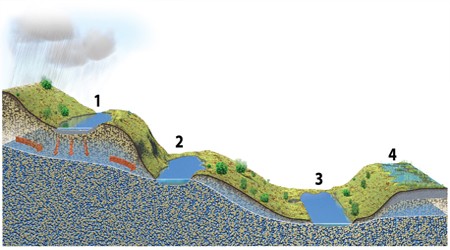Cold fronts
A) move at an average speed of about 60 miles per hour.
B) often create cumuliform clouds when they meet warm fronts.
C) usually rise above warm fronts.
D) have surface slopes of about 1:5.
Answer: B
You might also like to view...
The difference between inertia and resilience is that
A) inertia is the ability of an ecosystem to protect itself against experiencing stress, while resilience is the ability of an ecosystem to find its optimal range of conditions. B) inertia is the ability of an ecosystem to find its optimal range of conditions, while resilience is the ability of an ecosystem to protect itself against experiencing stress. C) inertia is the ability of an ecosystem to recover following stress, while resilience is the ability of an ecosystem to resist change after a stress is applied. D) inertia is the ability of an ecosystem to resist change after a stress is applied, while resilience is the ability of an ecosystem to recover following stress.
Which of the following processes will increase salinity?
Turkey's capital city is strategically located along the Mediterranean Sea coast
Indicate whether the statement is true or false
Of these four lakes, which ones are above the water table?
A. 1 and 2 B. 3 and 4 C. 1 and 4 D. 2 and 3 E. None of these.